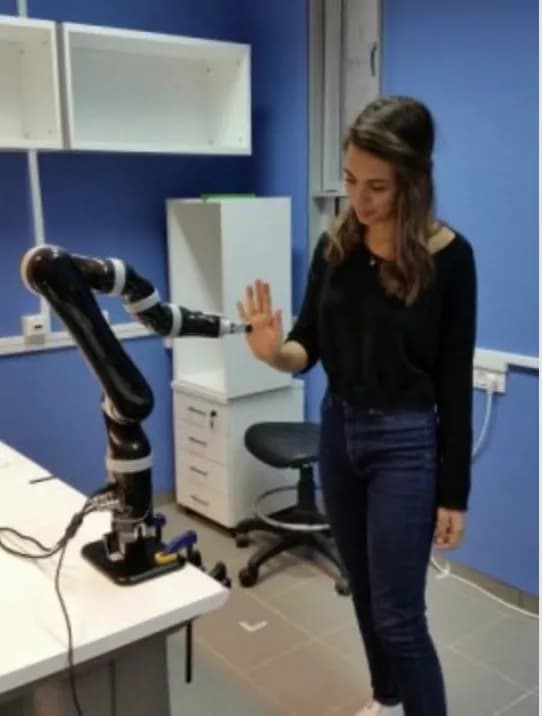
Personalizing Human-Robot Interaction May Increase Patient Use
Ben-Gurion University of the Negev (BGU) researchers have begun to discover preferences in human-robot interactions and the need to personalize those encounters to fit both the human's preferences and the designated task.
According to a new study published in Restorative Neurology and Neuroscience, the researchers tested user preferences when interacting with a robot on a joint movement task as a first step toward developing an interactive movement protocol to be used in rehabilitation.
Dr. Shelly Levy-Tzedek, head of the Cognition, Aging and Rehabilitation Lab in BGU's Department of Physical Therapy and a member of the University's Zlotowski Center for Neuroscience, focuses her research on the use of robots for rehabilitation of patients. Since many patients do not practice their physical therapy routines enough or at all at home, she is designing robot companions to encourage them to practice and track their progress.
"In the future, human beings may increasingly rely on robotic assistance for daily tasks, and our research shows that the type of motions that the robot makes when interacting with humans makes a difference in how satisfied the person is with the interaction," says Dr. Levy-Tzedek. "People feel that if robots don't move like they do, it is unsettling and they will use them less frequently."
In the study, 22 college-age participants played a leader-follower mirror game with a robotic arm, in which a person and robot took turns following each other's joint movements. When the robotic arm was leading, it performed movements that were either sharp, like dribbling a ball, or smooth, like tracing a circle.
The study yielded three main conclusions. First, robotic movement primes the human movement. That is, the person tends to imitate the movements of the robot. "This is a very important aspect to consider, for example, when designing a robotic nurse who assists a surgeon in the operating room," Dr. Levy-Tzedek says. "You wouldn't want a robotic nurse to make sharp "robotic" movements that will affect the way the surgeon moves his or her hands during an operation."
Second, there was no clear-cut preference for leading or following the robot. Half the group preferred to lead the human-robot movement while half preferred to follow. According to Levy-Tzedek, "This finding highlights the importance of developing personalized human-robot interactions. Just as the field of medicine is moving toward customized medicine for each patient, the field of robotics needs to customize the pattern of interaction differently for each user."
Lastly, the study participants preferred smooth, familiar movements -- which resemble human movements -- rather than sharp ("robotic") or unfamiliar movements when the robot was leading the interaction.
"Thus, determining the elements in the interaction that make users more motivated to continue is important in designing future robots that will interact with humans on a daily basis," says Levy-Tzedek.
The initial research by undergraduate student Shir Kashi won a "best poster award" at the Human-Robot Interaction (HRI) Conference in Vienna in March. This study was a continuation of her research. Kashi completed her undergraduate degree in cognitive sciences at BGU, and is now embarking on her graduate studies in the lab.
Materials provided by American Associates, Ben-Gurion University of the Negev. Note: Content may be edited for style and length.
Disclaimer: DoveMed is not responsible for the accuracy of the adapted version of news releases posted to DoveMed by contributing universities and institutions.
References:
Shir Kashi, Shelly Levy-Tzedek. (2017). Smooth leader or sharp follower? Playing the Mirror Game with a Robot. Restorative Neurology and Neuroscience. DOI: 10.3233/RNN-170756.
Related Articles
Test Your Knowledge
Asked by users
Related Centers
Related Specialties
Related Physicians
Related Procedures
Related Resources
Join DoveHubs
and connect with fellow professionals

0 Comments
Please log in to post a comment.